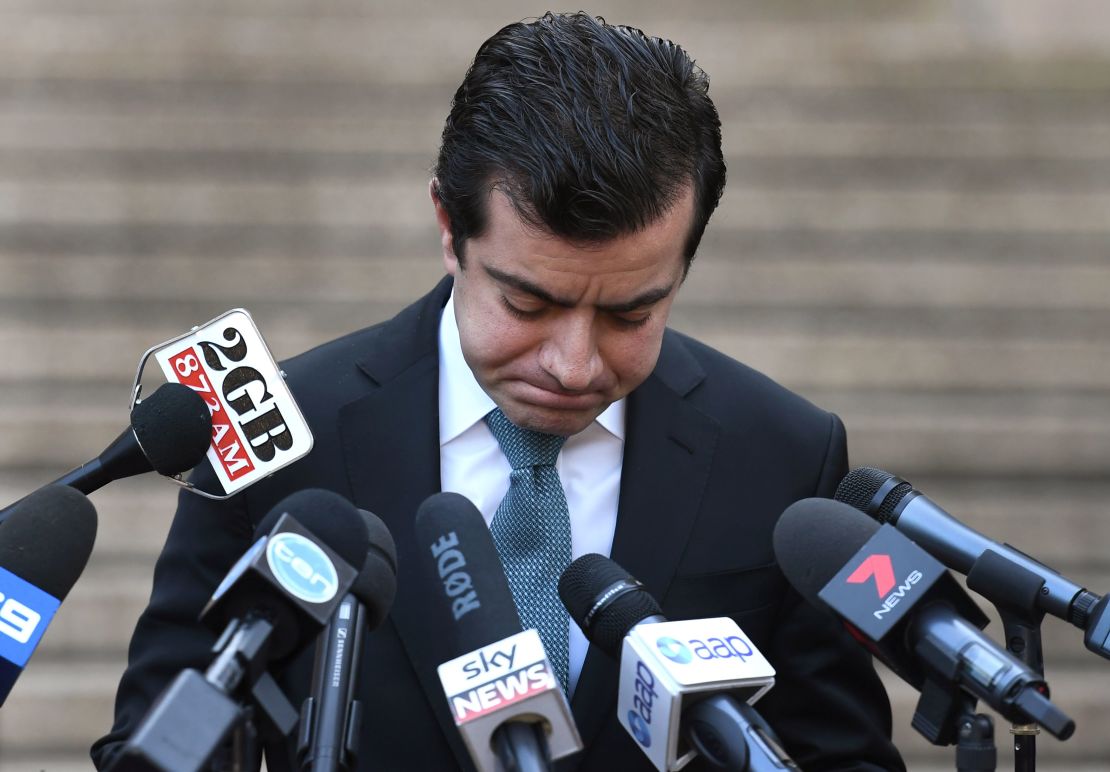Editor’s Note: Peter van Onselen is a professor of politics at the University of Western Australia. He is a contributing editor at The Australian newspaper and on Sky News Australia. The views expressed here are his own.
Australians have long been relaxed, perhaps too relaxed, about aspects of the country’s political system which would cause considerable consternation in many other western democracies.
Finally, on Tuesday, the government announced it was introducing new laws to ban foreigners from donating to Australian political campaigns, and to stop foreign powers from interfering in the country’s policies.
The move – long overdue in the eye of most political scientists – is a direct response to revelations that a senior Labor senator has had untoward dealings with a Chinese businessman who has donated to Australian political parties.
Prime Minister Malcolm Turnbull has used powerful rhetoric to announce the laws, describing them as being designed to protect Australia’s “way of life.”
“Foreign powers are making unprecedented and increasingly sophisticated attempts to influence the political process, both here and abroad,” Turnbull said.
Attorney-General George Brandis added: “If you act covertly on behalf of a foreign actor, in a way that harms Australia’s national security, to influence the political process, or a Government decision, that conduct will be criminalized.”
The government claims the laws will preserve the country’s democratic system, free from foreign influence, which begs the question: How exposed has Australia been in recent years to foreign interference?
Americans well understand the potency of concerns about foreign influence in elections given the allegations about Russian interference in the US Presidential election.
Why didn’t the Australian government support legislation the opposition Labor Party put forward a year ago to curb foreign donations?
Labor asked the question during Parliamentary Question Time on Tuesday, and the Prime Minister’s answers quickly turned to the untoward actions of Labor Senator Sam Dastyari.
Dastyari was revealed last year to have accepted money from a Chinese businessman. He also delivered a speech defending China’s territorial claims in the South China Sea, in direct contravention of Australia’s foreign policy position (and indeed Labor’s party platform) on this issue.
The Senator was forced to stand down from his frontbench portfolio, but shortly after doing so he was promoted back into the senior parliamentary ranks within the Labor opposition, this time as deputy whip in the Senate.
But this week it was revealed that not only did Dastyari understate the extent of his comments about the South China Sea (a recording of his comments was leaked to the mainstream media), but he also alerted a Chinese businessman that he might be under Australian Security Intelligence Organisation (ASIO) surveillance.

The optics are terrible for the Labor Party, and Dastyari has been demoted again. It is worth noting that Dastyari had no access to security information to pass on. His comments were based on assumption, nothing more.
Australia has a long history of large political donations from abroad, including hefty payments to the current government. But such donations have usually come from ideological allies of the major parties – overseas businessmen with links to the UK Conservative party for example, or trade unions in the United States collaborating with the Australian Labor Party.
These donations have culturally been viewed as little more than an extension of the open political exchanges that occur between similarly minded western democracies.
The rise of China, however, and efforts from within the emerging superpower to exercise soft diplomacy in the region and around the world, has raised new concerns.
The new laws announced Tuesday are being touted as “world leading,” but it remains to be seen how effective they will be in practice.
Australian espionage laws have rarely resulted in prosecutions, and while the new laws are designed to address such historical impotency, we will need to see the full drafting of the bill to know how effective what comes next might be.
With the draft Bill expected to be presented to the House of Representatives on Thursday, it also remains to be seen how quickly the legislation will pass through the Senate. It’s only likely to become law this year if Labor doesn’t stand in the way.
That said, in the wake of the Dastyari saga, Labor will be loath to be seen to contribute to any delays.


